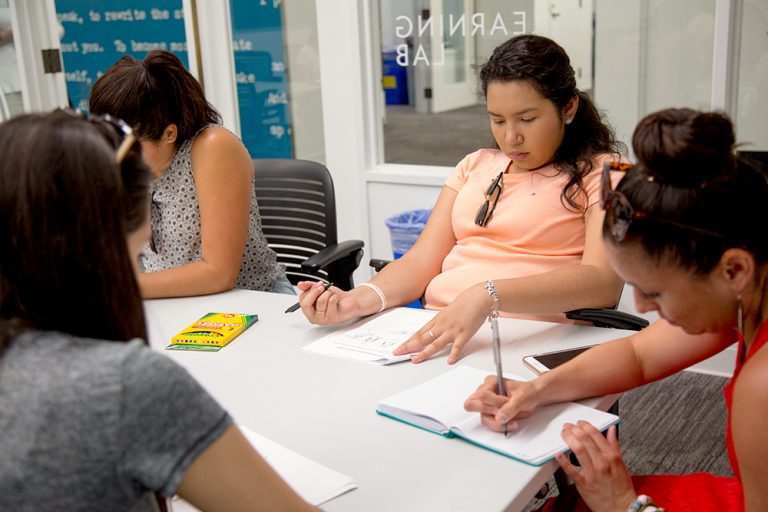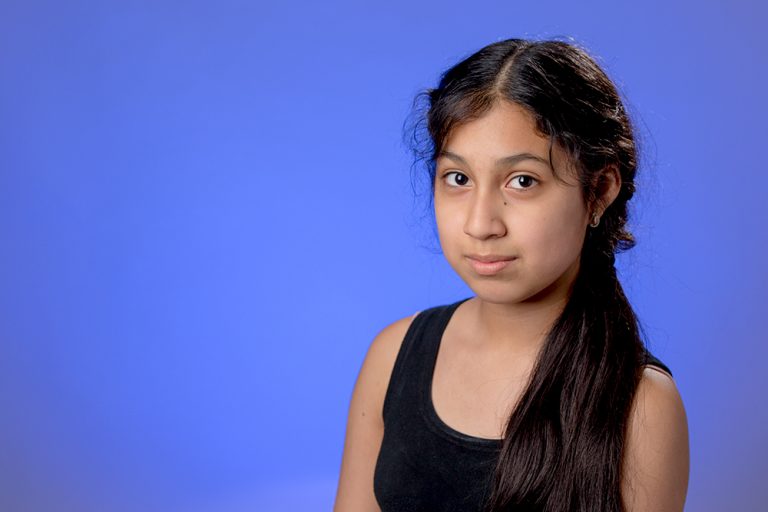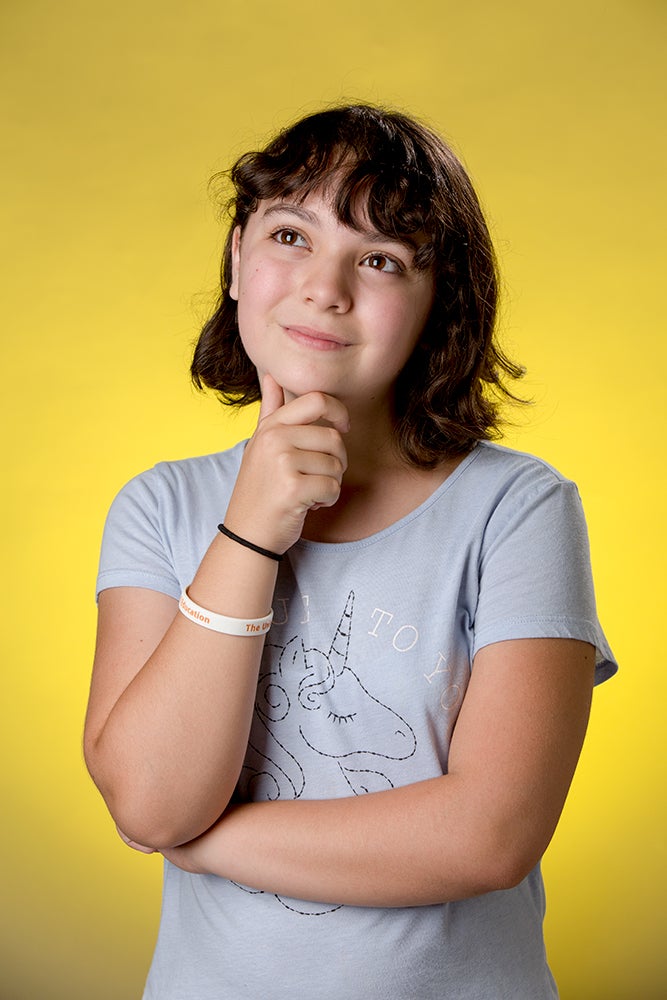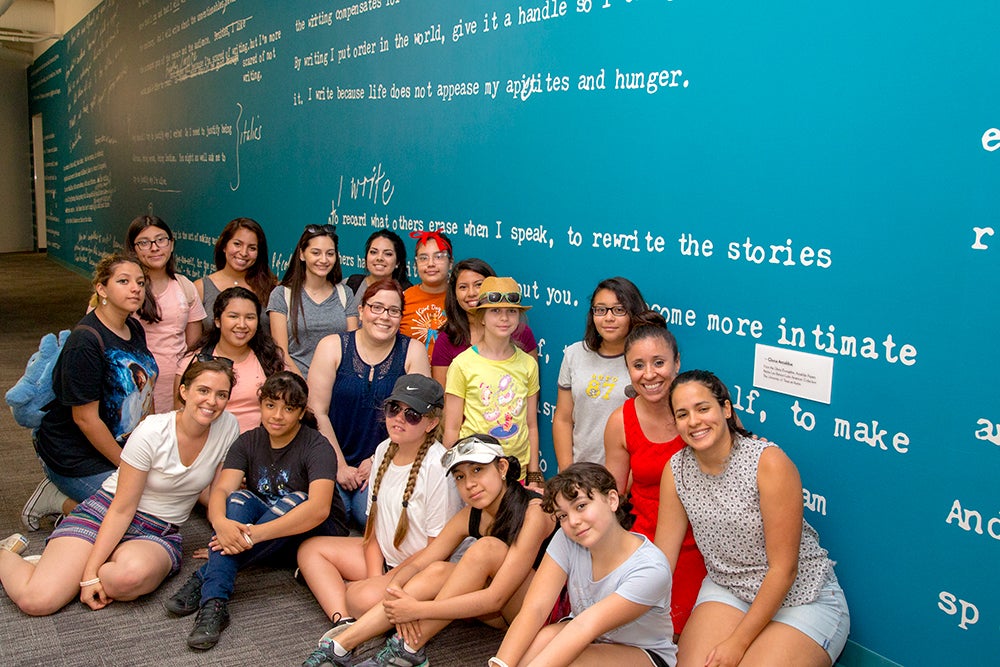Young Latinas infuse culture, tradition, and family into their writing
“My students and their families have important stories to share,” says Assistant Professor of Language and Literacy Tracey Flores, “and writing has the power to build community and solidarity.”
That’s why Flores began an afterschool bilingual family writing workshop while she was a second-grade teacher in Arizona. In the workshops, students met in her classroom for 12 weeks to draw, write, and tell stories from their lives.

“At the workshops, I modeled my own writing, we read mentor texts for inspiration, and used writing, drawing, and oral storytelling as tools to share ourselves and connect with one another,” says Flores. “Each week parents sat alongside their children at Con Mi Madre—each penning their own personal stories and working together throughout the entire writing process. In the classroom, students wrote more, began to integrate some of the strategies we practiced at workshops and, for the first time, many infused Spanish into their personal writing.”
Flores continues this work at the University of Texas at Austin. In fact, this summer, young Latinas and their families from across the Austin area participated in a Somos Escritoras writing camp on campus.
The work of infusing the students’ and their families’ culture, traditions, and language into their writing is important, says Flores, because many of the Mexican and Mexican American students in her Arizona classrooms were viewed as deficient and placed in English Language Development classrooms in which they received a different curriculum, a restrictive language and literacy curriculum, than that of their English-speaking peers.

“As I worked within and against these oppressive and racist structures, I saw how these mandates were silencing and controlling the voices of my students,” says Flores.
Flores says that she’s learned from the girls in this summer’s Somos Escritoras performative space “more about the concerns that are most important in the girls’ lives and the ways that they are defining themselves and naming themselves, through writing, theater, art and other performative acts. This work will inform future workshops for girls and will inform the ways that I plan and facilitate my Language Arts and Community Literacies courses for pre-service teachers.”

Says Fabiola, a 12-year-old girl who participated in the camp, “I wanted to find a place to fit in. I write a lot of poems in my free time, but I was afraid to share them. I feel more confident in myself as a Chicana and was able to share my stories with everyone. I have been sharing what I do in camp with my family, and they are really proud of me and that makes me proud of myself.”
Genevieve, a 7th grader, appreciated the sense of community the camp provided. “It’s been really nice to have a group that’s so open. I didn’t really get to have that in other places. This place makes me feel comfortable. We are each unique, but we have a lot in common. We were able to talk about both the discrimination we face and our triumph as Latinas. I really like hearing about others’ experiences and relating them to mine.”
Nathaly S. Batista-Morales is a doctoral student who works with Flores. She says that participating in Somos Escritoras fit into her education in the field of Bilingual and Bicultural Education because it offered her a model to see research in a new light. She says, “It showed me how to build relationships in the community, how to conduct research with the girls, and how to design opportunities that benefit my community now rather than later. Additionally, it fit well with my research focus on critical literacy, since the core of the program was reading and writing to speak back to issues of injustice, language, ethnic identity, and sexual orientation as we decentered notions of what young Latina women should look and be like.”
Says Flores, “The end goal is to engage my pre-service teachers in considering the practices of Latina girls and the work of spaces like Somos Escritoras, to privilege marginalized voices specifically, and Latina girls particularly, in their own future classrooms.”
Tracey Flores is an assistant professor in the Department of Curriculum and Instruction within the College of Education at the University of Texas at Austin.


